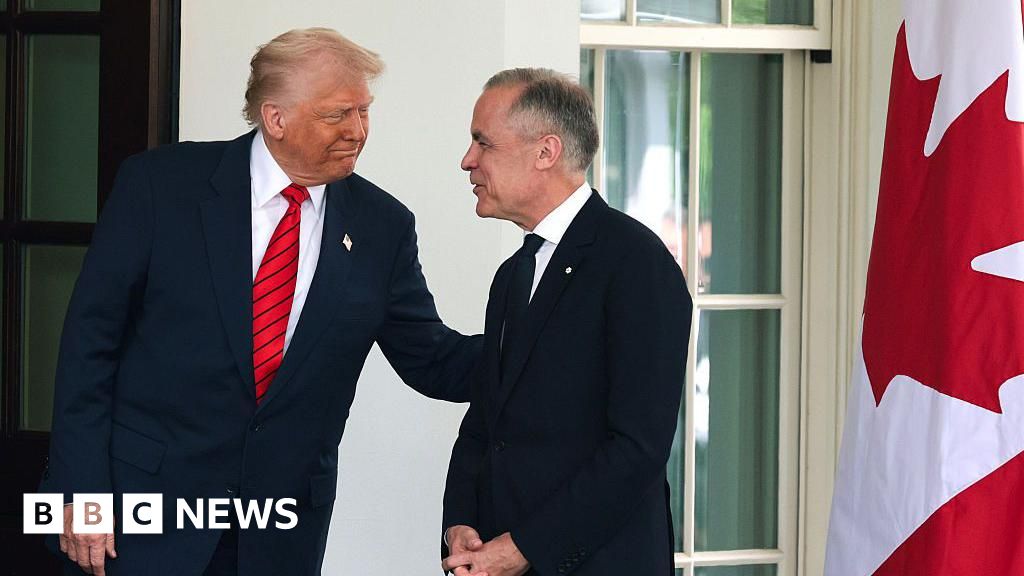“The Future of Sports Is Here: We are on a mission to redefine superhumanity through science, innovation and sports.”
An unabashedly ambitious goal, or at least choice of words. Yet “redefining superhumanity” isn’t enough for the Enhanced Games, a start-up that plans to hold an Olympic-style competition next year in Las Vegas.
The venture also seeks to “reinvent sports with science.”
Translation: Not just allow performance-enhancing drugs (PEDs), not just encourage their use, but celebrate their use.
Or, in the juice-flecked hyperbole of Enhanced Games copywriters, “We are pioneering a new era in athletic competition that embraces scientific advancements to push the boundaries of human performance.”
Breaking a world record in track or swimming sprint events will trigger a $1 million payout to the athlete, one of several performance bonuses promised by Enhanced. Where will the money come from? Investors reportedly include conservative billionaire Peter Thiel, Saudi prince Khaled bin Alwaleed Al Saud, and Donald Trump Jr.
From the audacity of the message to the deep pockets funding the venture to the athletes tempted by the prospect of making big money and setting world records, the Enhanced Games are worth a closer look.
Why are the Enhanced Games in the news?
World Anti-Doping Agency (WADA) president Witold Banka sounded an alarm last week at a meeting of Summer Olympics sports leaders, warning that the Enhanced Games pose a threat to all that’s hallowed and decent in global sport.
“This initiative seeks to normalize the use of potentially dangerous drugs,” Banka said. “For the sake of athlete health and the purity of sport, of course, it must be stopped.
“As the 2028 Olympic Games in Los Angeles approach, we cannot allow what should be a celebration of honest sporting endeavor to be overshadowed by this cynical attempt to undermine clean sport. We will urge the U.S. authorities to find legal ways to block this initiative.”

Witold Banka, president of the World Anti-Doping Agency (WADA), attends a press conference at the 2024 Summer Olympics on July 25, 2024, in Paris.
(Michel Euler / Associated Press)
Banka’s warning prompted eye-rolling in some quarters. The Senate committee on Consumer Protection, Technology and Data Privacy will hold a hearing Tuesday titled “WADA Shame: Swimming in Denial Over Chinese Doping.”
WADA refused to investigate claims of 23 Chinese swimmers testing positive for a PED before the Tokyo Olympics. With the LA Games in 2028 and Salt Lake City Games in 2034 looming, the Senate committee also plans to address claims that inconsistent enforcement by WADA has resulted in unfair competitions impacting American athletes.
USADA chief executive Travis Tygart accused Banka of mentioning the Enhanced Games to distract from the upcoming Senate hearing, telling the Associated Press, “Banka’s indignation equals his misinformation or ignorance about how free democratic societies and markets work.”
That doesn’t mean Tygart is A-OK with an endeavor that encourages the use of PEDs and the resulting tainted accomplishments.
“As we have repeatedly said, for all of the obvious reasons, the Enhanced Games or any other open competition is a bad idea,” Tygart said in comments emailed to Agence France-Presse. “If he really wants to ask U.S. authorities to do something, he should show up and ask the Senate to do something.”
The first global sports body to push back is World Aquatics, which passed a rule two weeks ago that bans any swimmer who supports the Enhanced Games — even if they’ve never competed — from representing their country again.

Former Olympic athlete Michael Phelps, (from left) Travis Tygart, CEO of the U.S. Anti-Doping Agency, and former Olympic athlete Allison Schmitt are sworn in during an Oversight and Investigations Subcommittee hearing on Capitol Hill on June 25, 2024.
(Nathan Howard / Getty Images)
The rule applies to those who “support, endorse, or participate in sporting events that embrace the use of scientific advancements or other practices that may include prohibited substances and/or prohibited methods,” a World Aquatics statement said.
When and where will the Enhanced Games take place?
The Enhanced Games will take aim at world records in swimming, weightlifting and track at Resorts World in Las Vegas on Memorial Day Weekend, 2026.
Scheduled swimming events are the 50-meter and 100-meter freestyle, and the 50-meter and 100-meter butterfly. Weightlifting will include the snatch and the clean & jerk. Track events will include the 100-meter dash and the 110-meter hurdles.

Chef Ray Garcia’s restaurant, ¡Viva!, located inside the Resorts World Las Vegas on Thursday, June 24, 2021.
(Mariah Tauger/Los Angeles Times)
Each event will carry a prize purse of $500,000, with $250,000 awarded to each winner. In addition, bonuses will be paid for world records, including $1 million for records in the 100-meter sprint and 50-meter freestyle, which the Enhanced Games website describes as “the two definitive tests of raw human speed.”
The Enhanced Games will take place within the resort. The competition complex features a four-lane pool, a six-lane sprint track and a weightlifting stage.
Who came up with this and why?
The founder and president of the Enhanced Games is Aron D’Souza, an Australian entrepreneur. D’Souza has been on a crusade to create an alternative to the Olympic Games, which he believes don’t compensate athletes fairly.
He advocates for the use of PEDs, arguing that athletes should have the freedom to make choices about their own bodies and that WADA acts as an “anti-science police force” for the International Olympic Committee.
Previously, D’Souza led Thiel’s litigation against Gawker Media involving the wrestler Hulk Hogan, which resulted in one of the largest invasion of privacy judgments in history, and is the subject of the book “Conspiracy” by author Ryan Holiday.
D’Souza is the founder of Sargon, a technology infrastructure company in Australia, New Zealand and Hong Kong. He sold his stake in the company in 2018.

(L-R) Amy Chua and Peter Thiel attend Inauguration Eve hosted by Uber, X and The Free Press at Cafe Riggs on January 19, 2025 in Washington, DC.
(Leigh Vogel / Getty Images for Uber, X and The Free Press)
The extent to which billionaire investors, such as Thiel, Alwaleed Al Saud and Trump Jr., will fund the Enhanced Games is unclear. Money isn’t a problem, if statements on the event’s website are believed: “We are backed by some of the world’s most successful venture capitalists, allowing us to operate independently without government and taxpayer funding.”
D’Souza told the Associated Press that Trump Jr.’s group, called 1789 Capital, is bringing “double digit millions” to the Enhanced Games. Trump Jr. made a video trumpeting his partnership, that includes an appearance by his father, President Trump.
Trump Jr., in a statement accompanying the announcement of the funding, said: “This is about excellence, innovation, and American dominance on the world stage — something the MAGA movement is all about.”
D’Souza is thrilled by the backing of America’s first family and other moneyed interests.
“To know that some of the most significant figures in American social and political life support the Enhanced Games is more important to us than any investment,” he said on a video call in February. “I’ve had the great fortune of working alongside many members of the administration and other prominent figures of the Trump movement over the years, so it’s a very natural fit.”
D’Souza and his team express lofty goals beyond juicing athletes, setting records and paying race winners. Last week, D’Souza posted as much on LinkedIn:
“This isn’t just about enhancement. It’s about economic freedom. About athletes having a choice. About breaking the monopoly that old institutions hold over human performance.
“At the Enhanced Games, we are unapologetic: We’re not backing down. We will fight — in the courts, in the public square, and in the arena of ideas — for every athlete who’s been silenced, underpaid, or discarded.”
Why are performance-enhancing drugs forbidden anyway?
The list of health risks associated with taking anabolic steroids — which have no medical use approved by the U.S. government — is long and frightening:
Men may see their breasts and prostate gland grow and their testicles shrink. Women may get a deeper voice, grow body hair and lose hair on their head. Both men and women might tear tendons or develop liver tumors, severe acne, elevated blood pressure, heart problems, issues with anger and depression.
The Enhanced Games say the competition will be under the supervision of a medical team, but by the time the games begin, damage from taking PEDs may have already developed.
“Protecting athletes is our top priority,” the Enhanced Games website proclaims. “Every competitor will undergo rigorous, state-of-the-art medical profiling before participating in the competition.”
The first athlete to show results from using the Enhanced Games PEDs regimen is Kristian Gkolomeev, a Greek swimmer who never medaled in four Olympics.
In February, Gkolomeev swam two-hundredths of a second faster than the 50-meter freestyle world record with a time of 20.89. He wore an inline full-body open water suit that is prohibited by World Aquatics.
“I’m kind of like the driver in the car, but I need the team behind me,” Gkolomeev said during an Enhanced Games promotional event last month in Las Vegas.

Greece’s Kristian Gkolomeev competes in the Swimming Men’s 50m Freestyle Semifinal 1 during the LEN European Aquatics Championships, at the Milan Gale Muskatirovic sports centre in Belgrade, on June 22, 2024.
(Andrej Isakovic / AFP via Getty Images)
Many believe that breaking records under the influence of PEDs is meaningless.
Paul Ifrim, a Romanian Luger who finished 20th at the 2010 Winter Olympics, responded to D’Souza’s LinkedIn post with this comment:
“I earned my place at the Olympics through hard, clean work and unwavering dedication over the course of many years. Integrity, fair play, respect, and perseverance are what inspire and shape true athletes. Your argument for ‘enhancing’ drugs, viewed as ‘athlete compensation,’ is a disgrace to those principles.
“What message are we sending young, aspiring athletes? That cheating and cutting corners is a valid path to success? These are pathetic excuses for undermining the true spirit of competition. You’re delusional for promoting this agenda. True athletes rise through grit and honor, not shortcuts and hypocrisy.”
Tygart, the CEO of USADA, had a similar reaction: “While those behind the Enhanced Games might be looking to make a quick buck, that profit would come at the expense of kids across the world thinking they need to dope to chase their dreams. We desperately wish this investment was being made in the athletes who are currently training and competing the real and safe way.
“They are the role models this world so desperately needs and they are the ones who deserve our support — not some dangerous clown show that puts profit over principle.”
A counterpoint was published last summer by anti-doping expert Michael Ashenden, who helped create the athlete blood passport system and develop a test for the blood-boosting drug Erythropoietin (EPO).
Initially opposed to the Enhanced Games, Ashenden changed his mind, writing that the failures of WADA to combat doping in the Olympics make an alternative viable.
“Today I advocate for the concept of an Enhanced Games to co-exist with the Olympic Movement, provided their athletes do nothing illegal,” Ashenden wrote. “I realized that not following the WADA rules was not so radical after all....”
“I acknowledge that by offering incentives for record performances, the Enhanced Games are tacitly encouraging the use of performance-enhancing substances. But by offering a gold medal, the Olympic Movement also incentivizes the use of performance-enhancing substances....
“Although it may be a bitter pill for the Olympic Movement, it was foreseeable that the commercialization of sport under their stewardship would create an environment that seeded a corporate disruptor.”








 English (US) ·
English (US) ·